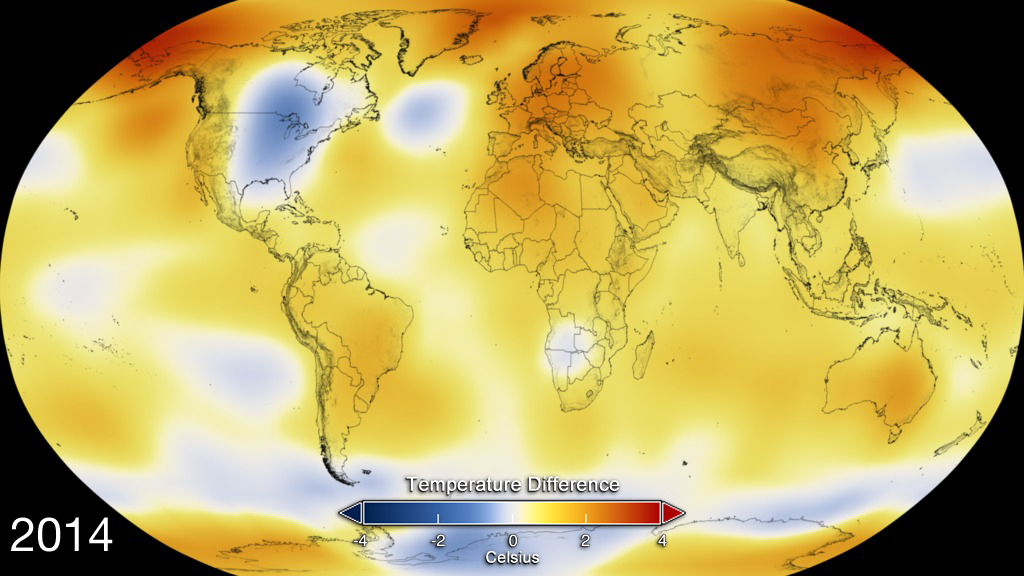This color-coded map displays global temperature anomaly data from 2014. Photo Credit: NASA's Goddard Space Flight Center
It's now official: 2014 was the warmest year in recorded history. According to two separate analyses by scientists at NASA's Goddard Institute of Space Studies (GISS) and the National Ocean Atmospheric Administration (NOAA), the globally averaged temperature over land and ocean surfaces in 2014 was the highest since 1880 when modern records started. And, with the exception of 1998, the 10 warmest years have all occurred since the beginning of the 21st century. Prior to 2014, the Earth's warmest years were 2005 and 2010.
Since 1880, Earth’s average surface temperature has warmed by about 0.8 degrees Celsius — and the majority of that warming has occurred in the past three decades. This long-term warming trend is the direct result of human activity, says NASA. It is mainly being driven by an increase in carbon dioxide emissions and other greenhouse gas emissions released into the atmosphere from human activity.
“This is the latest in a series of warm years, in a series of warm decades. While the ranking of individual years can be affected by chaotic weather patterns, the long-term trends are attributable to drivers of climate change that right now are dominated by human emissions of greenhouse gases,” said GISS Director Gavin Schmidt.
But this doesn't mean that temperatures will keep increasing at a steady rate and that every new year will have record-breaking temperatures. There will be regional differences in temperature due to weather events such as El Nino and La Nina — natural weather phenomena that warms and cool the tropical Pacific. Year-to-year fluctuations will therefore still occur.
“The globe is warmer now than it has been in the last 100 years and more likely in at least 5,000 years,” Jennifer Francis, a Rutgers University climate scientist, told Associated Press. “Any wisps of doubt that human activities are at fault are now gone with the wind,” she said.


Recommended Comments
Join the conversation
You can post now and register later. If you have an account, sign in now to post with your account.